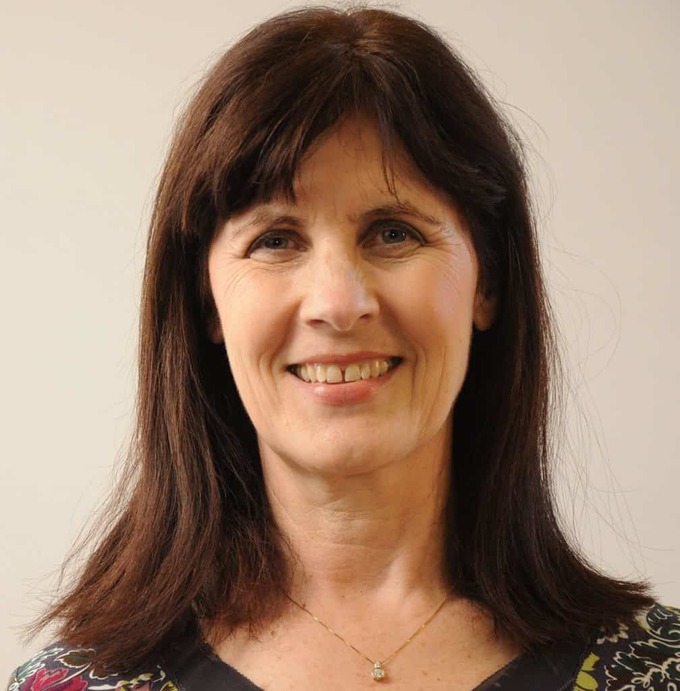I had the pleasure of attending the May 14th conference of the Manitoba Editors’ Association event in Winnipeg playfully titled, “Elementary, My Dear Writers: Demystifying the Publishing Process.” It was a terrific symposium with great speakers covering a wide gamut of topics that affect those of us working in the book publishing industry.
The keynote speaker who started off our day was Mary-Ann Kirkby, the author of “I am Hutterite,” the autobiographical look at being raised a Hutterite child on the Canadian Prairies. Kirkby has had tremendous success with her self-published title, selling 75,000 copies primarily through word-of-mouth before signing on with a US publisher to gain a distribution network south of the border.
Kirkby had some tremendous advice for authors, expressing some frustration on how she was dismayed at the lack of interest in her book east of Manitoba. “The book has sold very well in Manitoba and west, but there has been little to no interest in Toronto and the rest of Canada.”
It was stressed that 90% of book sales are dependent on promotion, and that writers must be comfortable with the promotional side of the business if they are to consider self-publishing, or going it on their own without the help and guidance of an agent.
But Kirkby emphasized the importance of an editor, and thanked her own editor, Arvel Gray, repeatedly for the assistance and guidance she provided throughout the seven-year journey it took to write her book. “Editors are midwives,” said Kirkby. “A good editor can draw you out and help you get the job done. A good editor can transform black and white into colour.”
Very powerful words from a successful author proving the importance of an editor to any writer or author.

The May 14th event included an all-female panel focusing on the birth of a book … taking us through the early stages of research and writing, the pivotal editing process, and the ultimate publishing and promotion of the book. Winnipeg-based editor, Jenny Gates, had some great advice for authors. “An editor should partner with the author, not oversee their work. You won’t know how the relationship with the editor will go until you’re into it, so be prepared to walk away it if is not a comfortable fit.”
Gates has served as an independent (freelance) editor for many self-published authors and charges $60/hour for her services, advising us that the range of fees is generally about $25/hour for proofreading or copyediting and can be as high as $125/hour for substantive (major) editing.
She said that a good way for writers and authors to select an editor is to check out other books that the editor may have done. “Or give the editor 10 pages of your book for them to edit, to see if you like what they’re doing to your work.”
The Editors Association of Canada does have a certification process that editors can go through, but Gates cautions that this doesn’t necessarily mean you’ll get a better editor if you choose one that is certified as it is an optional program and many independent editors choose not to go for certification.
Have you had a terrific experience with an editor? I must say, I’ve had many. The most recent being my editor at the CAA (Going Places) magazine, Sheila Hansen, whose advice on my article “Flying with Solace” brought it to the level of being nominated for the Western Magazine Awards to be handed out in Vancouver on June 17th. (Wish I could be there, but I’ll be in Montreal at that time for the PWAC conference.)
Have you had a dreadful experience with an editor? I must admit I’ve had one of those, too. The editor I worked with on my first book back in 2003 left a very sour taste in my mouth, distancing me from the book writing business for several years. I was so fortunate that the next editor I worked with on the bestselling “Manitoba Book of Everything” in 2008 was marvellous.
That positive experience opened my mind and the door to my first solo project, “Before You Say Yes…” in 2009. That editorial experience was positive, but not outstanding, verifying that book authors can expect a full range from awesome to awful in the editing process. Please tell us about yours. We all learn from the experience of others.

Thanks, Marg. Am making some awesome contacts here in London. Exciting!
All the best with your book proposal, Doreen!
Hope timing is on your side this go-around.
Thanks for the comment, Yvonne. But for clarification, it was Mary-Ann Kirkby who made the comparison of an editor to a midwife. I liked the quote so was pleased to share it here.
And thanks for the audio link to the interview with Dana. Lots of info there! I'll have to create an author's page at authorcentral on Amazon. I've meant to do that, but never have found the time. I'll now be sure to include the tags.
Thanks, also, for your comment, Christine. Absolutely, writers and editors are collaborators. When the relationship is working well, magic is made.
I've been very lucky to work with some really good editors, both as a writer, and as an editor. It's made me a better writer.
The editors I work with now are appreciative of the work I put in, which is wonderful. I also appreciate how hard they work and try to not give them extra work. One editor told me that the writer/editor relationship, when it's working well, is a collaborative one. Fortunately that's been my experience, and is still my experience more often than not.
As a developmental editor for many clients, I love what Doreen said about editors being like midwives. We help people give birth to books! http://writersinthesky.com.
I did a teleconference on book marketing with Dana Lynn Smith last week. There is a ton of great information for authors who need help optimizing their author page on Amazon.com. I bet most authors don't even know they have one!
Thanks, Suzanne and Esther.
You are both in the same boat: about to write your book proposals. Good luck with them.
I've been massaging the proposal for my chocolate book over the past 18 months as I continue my research. It's now ready to go, and hopefully … hit the mark.
Remember that the proposal itself is a literary work of art, and equally as important as the manuscript itself. If you don't draw the agent or publisher in withy your proposal, you won't draw the reader in with your manuscript. Until now, I had no idea how important that part of the process was/is. Best wishes to you as you embark on that journey.
Hi Doreen, I have read "I am Hutterite" and found it a fascinating read! As you may already know, I am writing a manuscript about being born and raised into a religion that considers itself "moderate" — until you try to live like they insist. I am planning to write my book proposal in the coming weeks, as I am taking some holidays.
Doreen, I love the analogy of the midwife. My editor offered suggestions so that I could write the manuscript on my own, with her coaching. She was gentle (like a midwife) and I did all the work…just like giving birth! …And breathe!!! 😉
I am soaking up all the information I can on book publishing right now as I prepare another book proposal. Thanks for this valuable insight.
Thanks for dropping into the blog, Jenny, and for the great presentation on Saturday!
The MEA did a terrific job of bringing authors, editors, publishers and booksellers together to discuss the industry. I think we all learned a lot!
Thanks for including the quote about the relationship between the author and editor and being willing to walk away. Still smarting from the one time that I, as the editor part of the equation, did not walk away and should have – but another lesson learned, and gave me a great point to make on Saturday.
Somehow I knew you'd be the first to comment on this post, Amanda. Thanks SO much for alerting me (and my readers) to this event. It was truly awesome.
Yes, Jenny is a marvellous speaker. Just another endorsement for Toastmasters. In addition to attending fabulous conferences, it's one of the best investments any writer (or person for that matter) can make in themselves and their careers.
I, too, attended this conference, Doreen, and came away with both information and ispiration. I am now reading Mary-Ann's book and finding it a fascinating tour through Hutterite culture about which, I am now learning, I know essentially nothing!
As both a writer and an editor, I appreciated Mary-Anny's comments about the value and power of a good editor; and I was interested to read of your own experiences (good and bad) with editors. Just goes to show, I suppose, that – like with any relationship – it can be positive or negative depending on the dynamics, objectives and sensibilities of the people involved.
What came through loud and clear for me from every panelist is this: Know why you're writing. Know what you want to achieve from your writing. Hook up with the right person/people to help you achieve those goals (from editor to printer/publisher to promoter, etc.).
But the bottom line comes from Jenny Gates (such a good speaker!): If you have a story you want to tell, don't let anything stop you from writing it and sharing it.